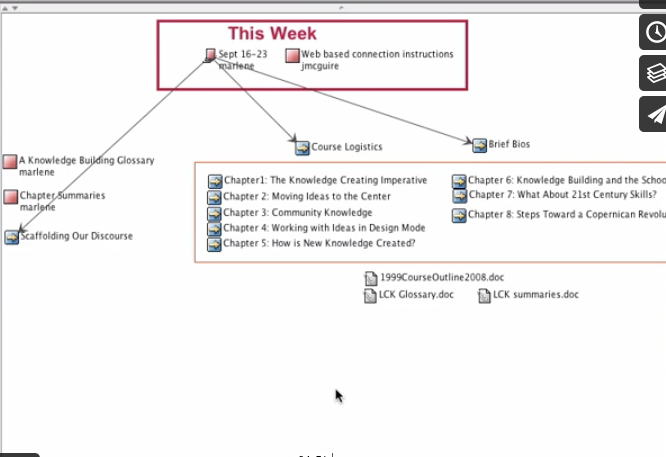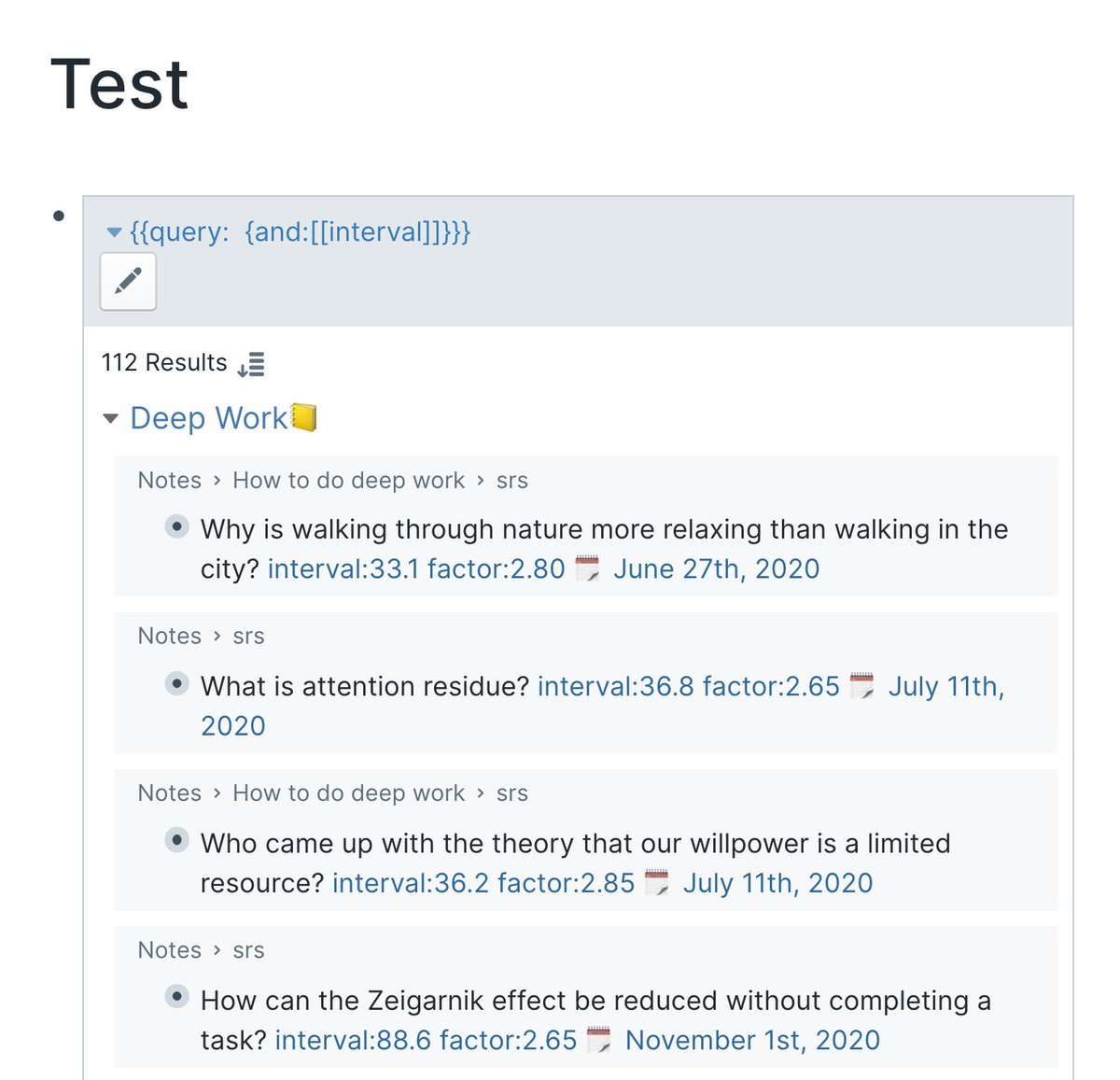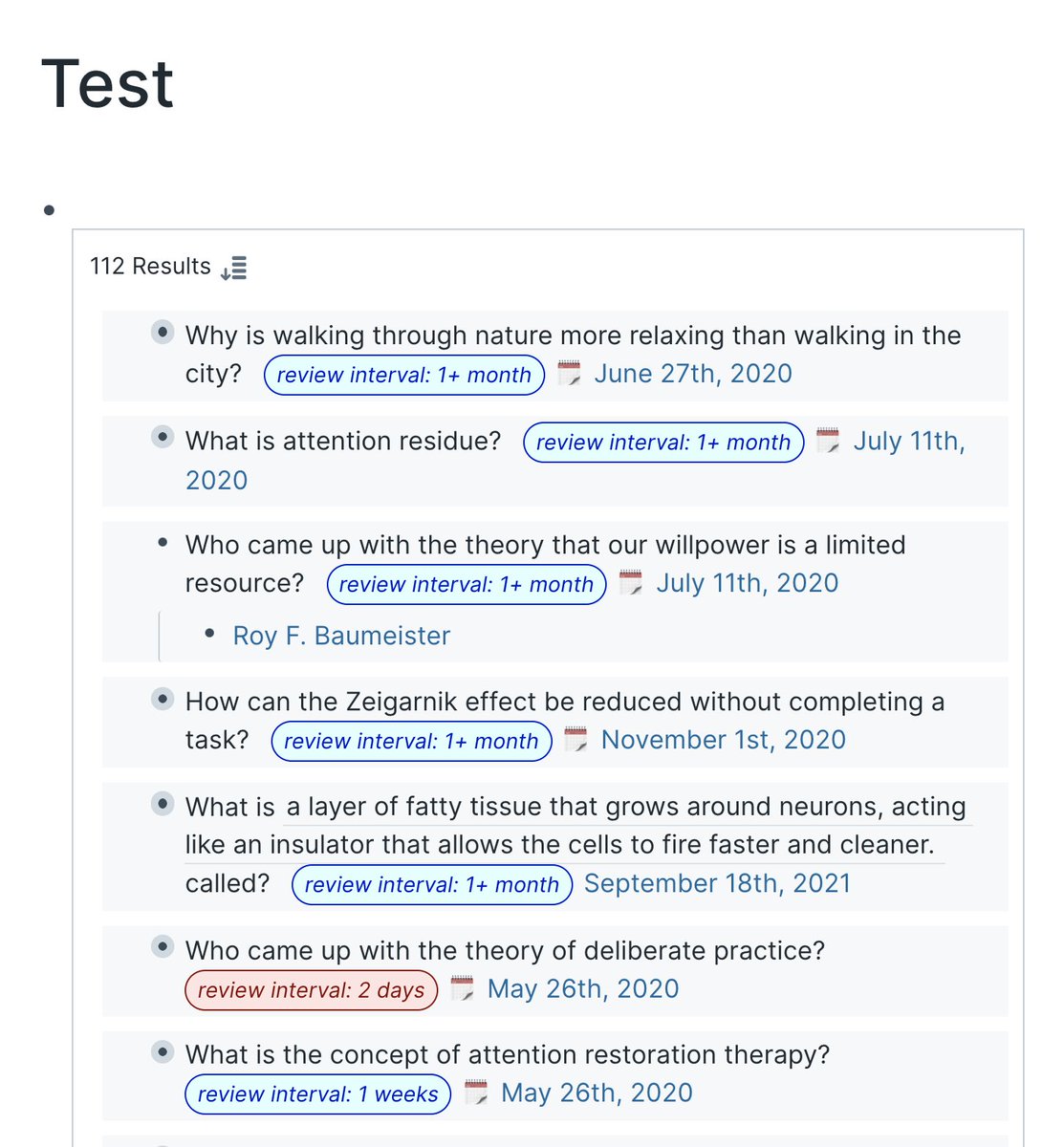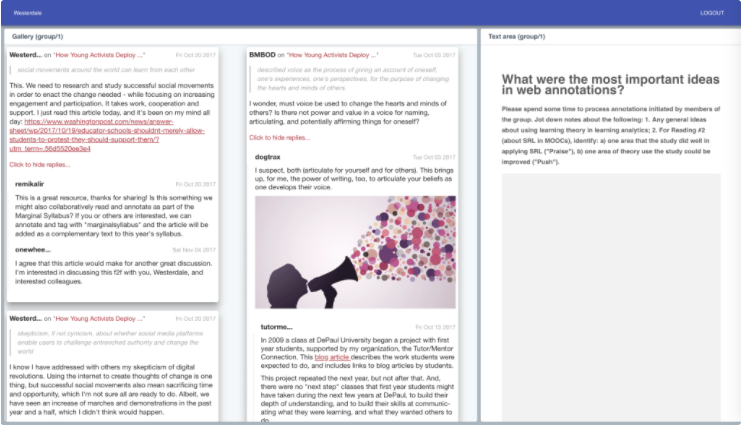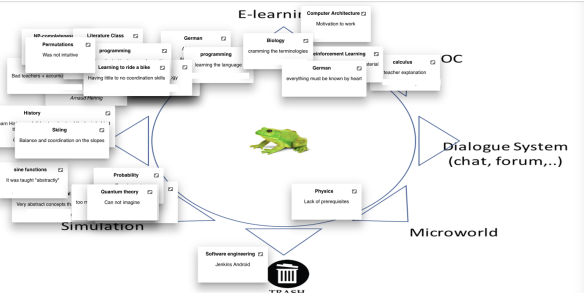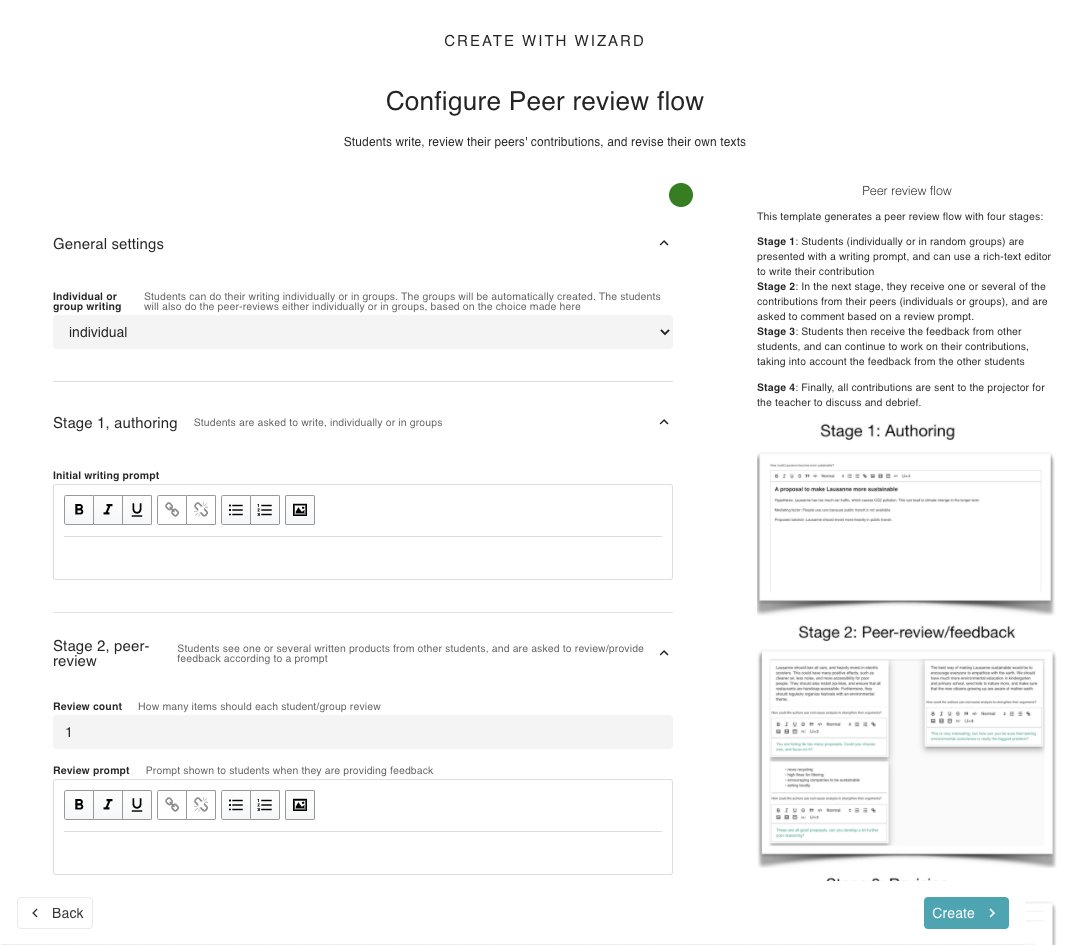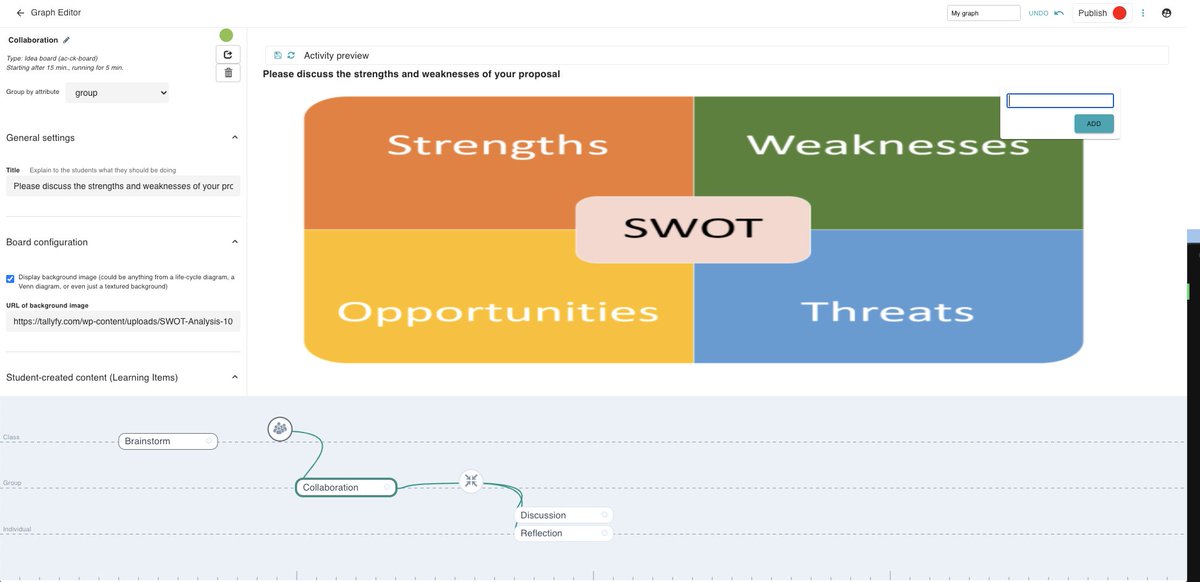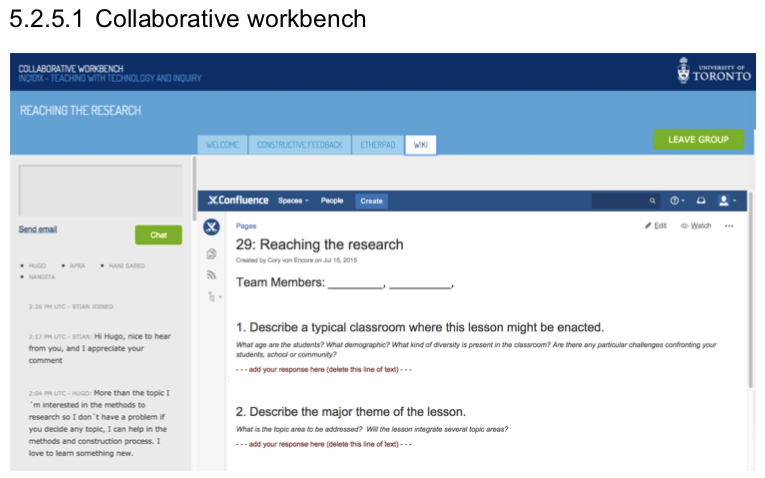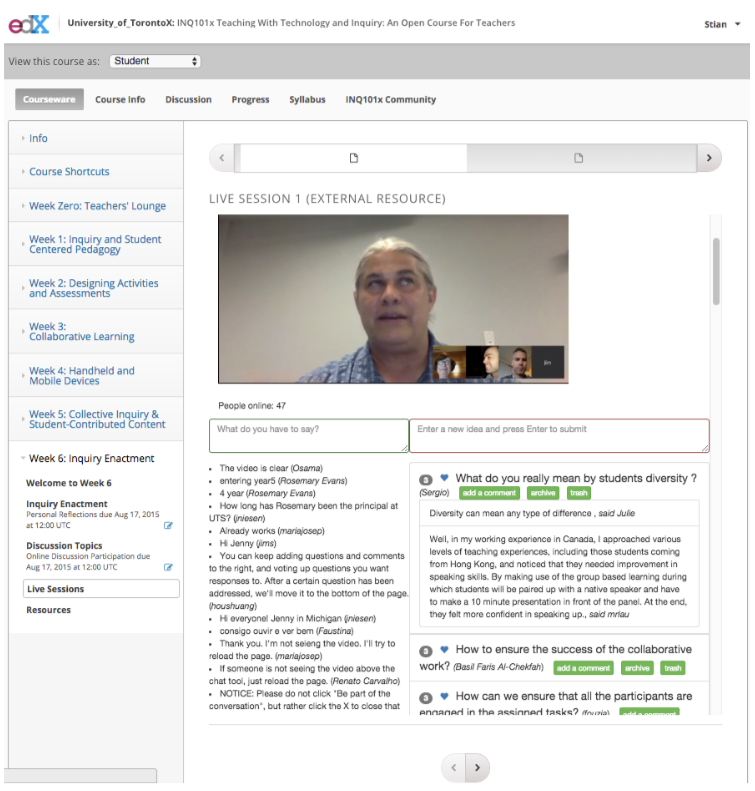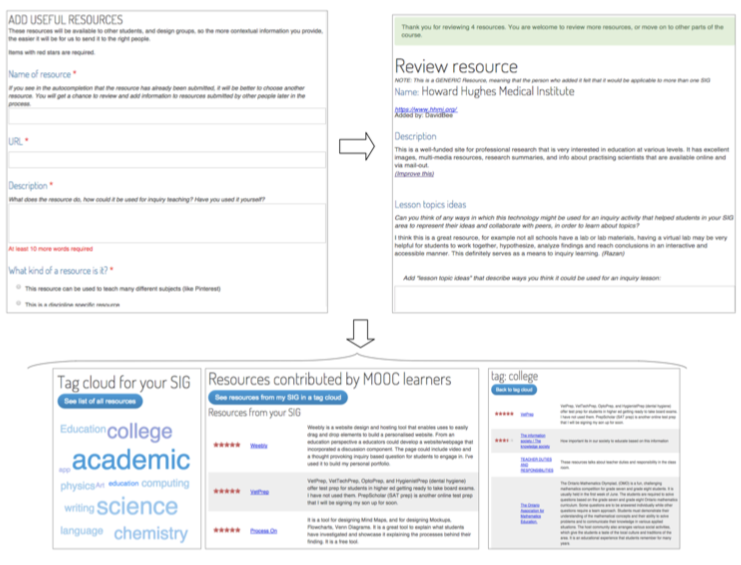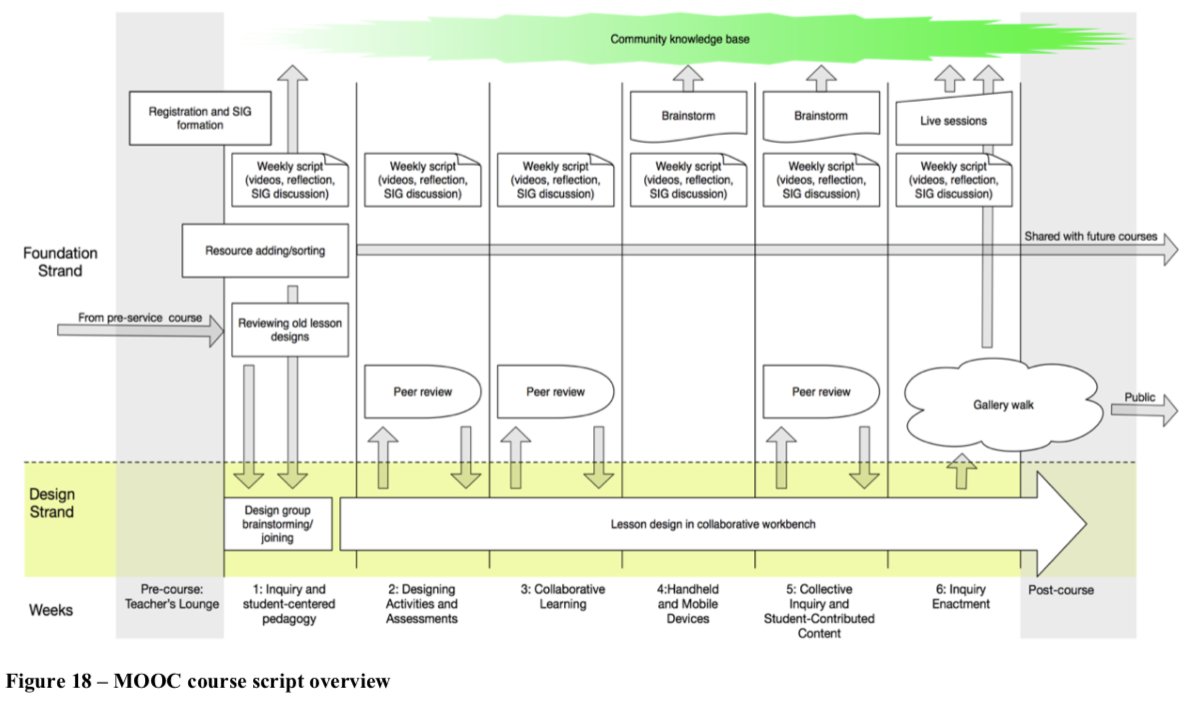
Rebooting my SRS questions with a daily query catching due and overdue cards, and nice CSS
https://twitter.com/houshuang/status/1334959616808144898. Have about 45 cards, going to work through them and start adding more. Still experimenting but generally happy with the quality of my cards and underlying notes.
Doing it in Roam is great because you have context. Because answer is a reference, shift+clicking gives so deep context in the sidebar - where it's from, the bigger story. Often, reviewing a card, I will add to my notes, look something up. 

This was from a very engaging lecture
https://twitter.com/houshuang/status/1272805663891128320. Curious to dig deeper into evolutionary perception, and Piaget in general. What would be the best book by/about Piaget for a book club?
Hopefully these notes are approved by the indentation master @rjnestor :)
Ref his great video on indentation in Roam - one of the fundamental building blocks, taking backlinks to the next level. In a page based system, a backlink would just show me a link to 10 pages of notes about a Jean Piaget lecture. Not by far as useful
Really trying to read more critically - I like thinking through questions before I start reading a chapter. Then I can easily block-ref these questions while I read, and see how different parts of the text provides answers. 
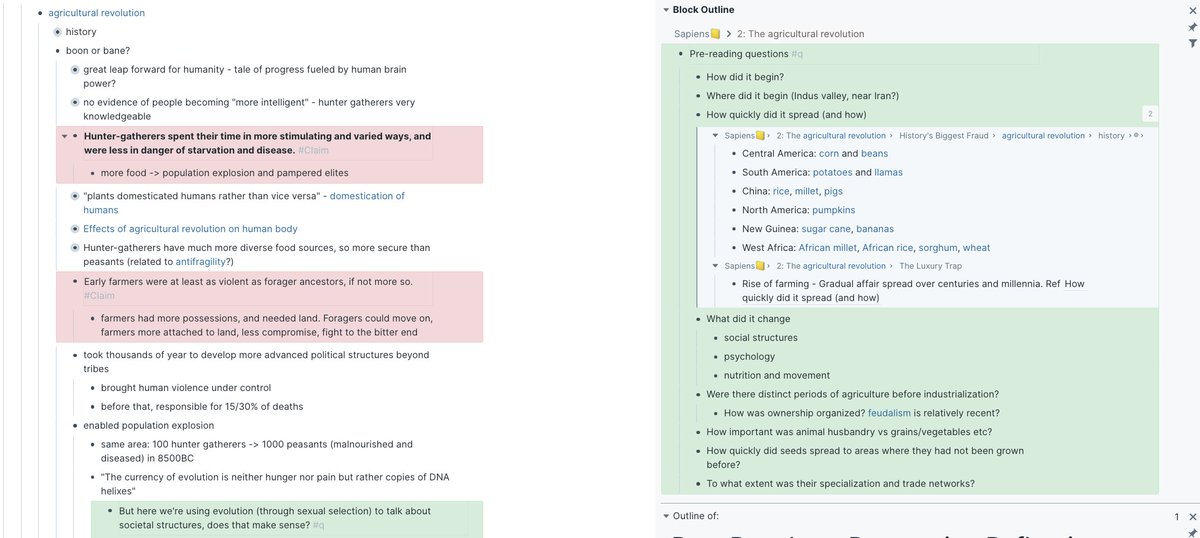
The new block-ref UI where you can easily see mentions inline is a game changer. Didn't use it much before, now love it - can easily see where I answer my own questions, or where I refer to previous ideas. See example on the left. 

Here I'm pulling all the questions from this page up using a query, and expanding a block-ref inline where he is answering this question in a different chapter. 

• • •
Missing some Tweet in this thread? You can try to
force a refresh







